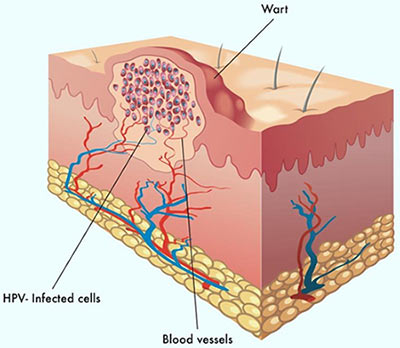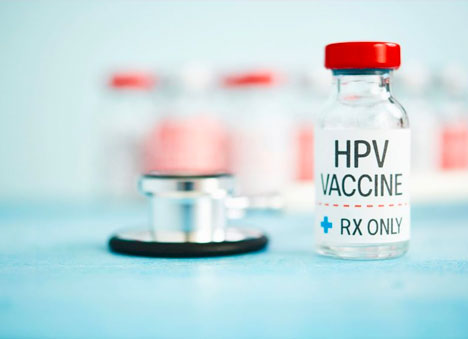Genital Warts
 Genital warts are a common sexually transmitted infection (STI) that will affect almost half of all sexually active people at some time in their lives. The unsightly formations typically are only mild genital warts —they appear as soft bumps on the mucus and the skin of male and female genitals. Some have a cauliflower-like appearance, and others may be too small to even see with the naked eye.
Genital warts are a common sexually transmitted infection (STI) that will affect almost half of all sexually active people at some time in their lives. The unsightly formations typically are only mild genital warts —they appear as soft bumps on the mucus and the skin of male and female genitals. Some have a cauliflower-like appearance, and others may be too small to even see with the naked eye.
Genital warts occur due to human papillomavirus and are sexually transmitted. They typically form around the anus or directly on the vagina, penis, cervix, urethra, or vulva. They can appear as a single wart or form clusters. Genital warts or other abnormalities in the genital area should always be evaluated with a thorough consultation and examination by a physician gynecologist for an accurate diagnosis and treatment plan. It may be a symptom or sign of a severe illness or condition.
We offer comprehensive obstetrics and gynecology care for women of all ages. Our OB-GYN clinic provides a full range of gynecologic services, from annual check-ups and routine pap smears to abnormal uterine bleeding treatments, GYN procedures, and surgeries performed in our office or the hospital.
Genital Warts vs. Herpes
The HPV virus causes genital warts, more than 100 different strains, herpes are caused by HSV, herpes simplex virus. There are two versions of HSV, the kind that appears on your lips or mouth, called herpes simplex 1, and the type you see on your genitals, thighs, or buttocks known as HSV 2. Though both are sexually transmitted and appear as bumps on your genitals, herpes and genital warts bear little in common.
Another significant difference is that there is no cure for herpes, while medications or surgical removal can treat genital warts. Side effects can be complex for both conditions and can go unnoticed for long periods. HPV is difficult to predict, but herpes is manageable once you learn how to control outbreaks.
How Is HPV Transmitted?
If HPV causes genital warts, what causes HPV? The infection that leads to HPV warts and HPV bumps transfers through sexual contact and sharing bodily fluids, including those from the vagina, anus, penis, or mouth. The HPV virus lies dormant for years, making it difficult to discover its origin. The Centers for Disease Control and Prevention (CDC) reports at least 14 million new HPV infections every year, increasing the odds that the virus that causes warts may affect you at some time in your life.
Not everyone who comes in contact with the virus will develop warts. Of the many types of HPV, only a few kinds cause genital warts. Other types of HPV put you at risk for precancerous effects in your cervix and even can lead to cervical cancer in some cases. These high-risk HPV types also can cause vulvar or vaginal cancer, anal cancer, mouth cancer, or throat cancer.
The newest HPV vaccine prevents the most critical strains that can lead to cancer and may protect you from several HPV strains that can cause warts.
Symptoms to Watch For
Often, you can carry the HPV virus that causes warts and shows no symptoms at all. Others may get the infection and not show any signs for anywhere from six weeks to six months later, another reason that makes it so challenging to identify the source.
You may see evidence of genital warts:
- As growths that look like the tops of little cauliflowers
- That is flesh-colored, raised, or flat
- Inside the vagina
- On the penis
- On skin surrounding genitals
- In or around the anus
- On the lips, mouth, throat, or tongue
In addition to the appearance of warts, you may in rare cases also experience other symptoms, such as:
- Itching in the genital area
- Excessive vaginal discharge
- Dampness in and around the genitalia, near the warts
- Bleeding from the vagina during or immediately following sex
Genital warts may cause pain or discomfort depending on the size and location of the wart. In most people, genital warts are mostly just unsightly and mildly uncomfortable if they are in an area that rubs against material or other skin when you move. For some, however, genital warts can burn, bleed, or itch.
Diagnosis
Sometimes, a gynecological surgeon can’t see genital warts, which is why he might apply a solution to your genital area that causes warts to whiten. The mild acetic acid (vinegar allows the gynecologist to view the growths under a unique magnifying instrument called a colposcope. The procedure, called a colposcopy, allows your health care provider to find them and take a biopsy of the abnormal skin.
For women, the diagnosis of genital warts typically involves a pelvic exam. The pelvic exam, or Pap test, can help detect other cervical or vaginal changes caused by genital warts and early warning signs of cervical cancer, a potential complication of a genital HPV infection. It is interesting to note that HPV is generally not tested for in men.
Treatment Options
In many cases, the HPV virus goes away on its own, as the human body can rid itself of certain invasive infections. Genital warts, on the other hand, must be treated carefully by a gynecologist. Whatever you do, don’t try to treat genital warts at home with over-the-counter creams or medications.
After getting a diagnosis, your NYC gynecologist will provide you with treatment options based on the size and location of warts.
Some of the in-office treatments include:
- Laser therapy
- Cryosurgery (freezing of warts)
- Electrocauterization (burning of warts)
- Surgical excision (cutting the wart out under local anesthesia)
Prevention
 If you’ve been diagnosed with genital warts, you should see a gynecologist for immediate evaluation and treatment. Even if you end up with no apparent warts, but you know you’ve been intimate with someone who has genital warts, you should undergo treatment to prevent the spread of the HPV virus and to avoid complications.
If you’ve been diagnosed with genital warts, you should see a gynecologist for immediate evaluation and treatment. Even if you end up with no apparent warts, but you know you’ve been intimate with someone who has genital warts, you should undergo treatment to prevent the spread of the HPV virus and to avoid complications.
Genital warts caused by the HPV virus are the primary precursor to cervical cancer, which is why so many young women choose to get tested even before they are sexually active. Genital warts also can grow and become large and much more painful than they are now.
While safe sex is the best way to prevent the spread of genital warts and HPV, a vaccine currently available that can decrease the risk of becoming infected with multiple HPV strains. While guidelines are constantly changing for who should be vaccinated, you should contact one of your doctors to determine if you are a candidate for the vaccine.
Have questions about Genital Warts? Schedule an appointment with NYC’s premier gynecologist today.
Updated on Sep 23, 2023 by Manhattan Women’s Health and Wellness
Best-in-class
New York Gynecology Clinic
Manhattan Specialty Care in the Press

Call now to make an appointment with our highly rated Manhattan Gynecology doctors regarding your health. We look forward to seeing you!
book online now
(212) 378-9985
New York City Locations:
Manhattan Women's Health & Wellness (Upper East Side)
983 Park Ave, Ste 1D17
New York, NY 10028
(212) 389-1904
Manhattan Women's Health & Wellness (Midtown)
56 W 45th St, Ste 815
New York, NY 10010
(212) 677-7654
Manhattan Women's Health & Wellness (Union Square)
55 W 17th St, Ste 104
New York, NY 10011
(212) 378-9985